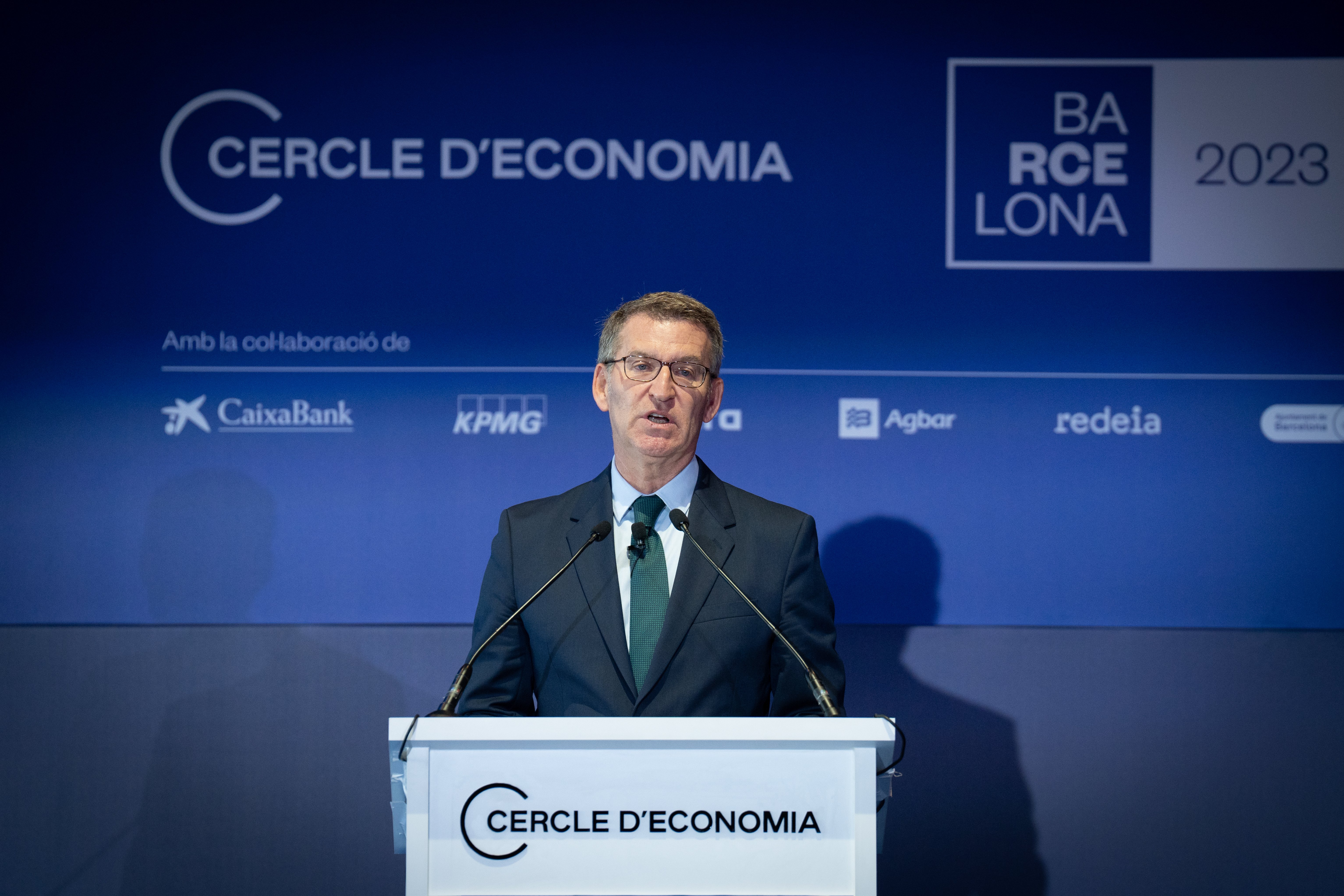The first political appointment of Alberto Núñez Feijóo after his party won the municipal and regional elections on May 28th was in Barcelona, at the annual Cercle d'Economia business gathering. Pedro Sánchez was also supposed to attend today, to close the occasion, although after the call for an early general election, the Spanish prime minister cancelled his attendance and was replaced by deputy PM Nadia Calviño. After making a veiled criticism of Sánchez for his absence, expressing his "satisfaction" at being able to be at this event and reiterating the importance of the institution, Feijóo analyzed both the current political moment in Spain and the role that, in his view, Catalonia must play if he leads Spain's People's Party (PP) to power on July 23rd, an eventuality that some, like Catalan president Pere Aragonès, have already taken for granted. In addition, in response to the questions from members of the business institution, the Galician was also prodded into making an exploration of the past, and he acknowledged errors of the PP in the management of the Catalan issue, while also assuring that the same mistakes have also been repeated in other autonomous communities.
The PP's error, not addressing the problem of Catalonia
"Sometimes, even if you think you're right, if you turn around and no one is following you, you have to rethink not so much what you think but how you explain it," reflected Feijóo on these mistakes made in Catalonia. He considered that they were wrong when they considered that the problem with Catalonia was "something that could not be addressed and we treated it as if it were chronic". "It was a mistake," acknowledged Feijóo. He also made it clear that, for him, "Catalonia is one of the motors of Spain and if things are not in good shape in Catalonia, neither are they going well in Spain, and vice versa".
In addition, the former president of the autonomous community of Galicia also revealed that he was born in a "peripheral place", a fact that helps him to have more perspective, according to him, on what happens and is experienced throughout the country: "I know that Spain is not just what happens in Madrid, because Madrid is not Spain. I know that Catalan and Galician are Spanish languages and in Galicia I always speak in my mother tongue," insisted Feijóo, who with this discourse took a step away from the rhetoric of Isabel Díaz Ayuso, who on Sunday won an absolute majority in the Community of Madrid. Back in 2020, in an appearance with Pedro Sánchez, Ayuso's summed up her own position on the matter: "Madrid is Spain within Spain. What is Madrid if not Spain?"
The role of the PP in Catalonia: a party of government
Sunday's municipal and autonomous community elections saw the PP regain much of the territorial power it had lost in recent years, and even if in some cases, agreements will have to be reached with the far right in order to obtain autonomous presidencies and municipal mayoralties, the trend was homogeneous throughout the state with a few exceptions - one of them being Catalonia. In the Catalan municipal elections, the overall winners were the Catalan Socialists (PSC), but the PP managed to significantly improve its results compared to 2019.
Nevertheless, Feijóo made it clear that the PP are not satisfied with this increased support and expressed his wish to go further in Catalonia. "I don't aspire for the Catalan PP to be a testimonial party, one of my goals is for it to be a governing party that connects with Catalan society." Right now, in Parliament the PP has only three deputies, but the latest polls give it a substantial increase in representation, a development which also takes place in the context of the final collapse of Ciudadanos. "We will continue to work to regain the confidence of Catalans and for them to see us as useful politics to overcome the division", said the leader of the opposition and PP candidate in the general election of 23rd July.

